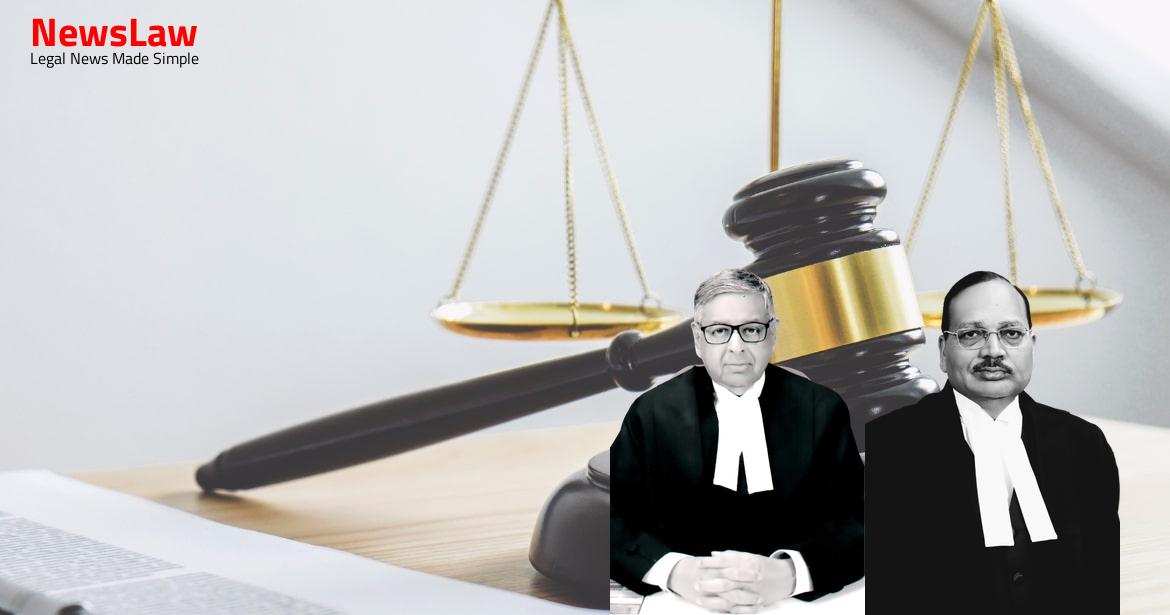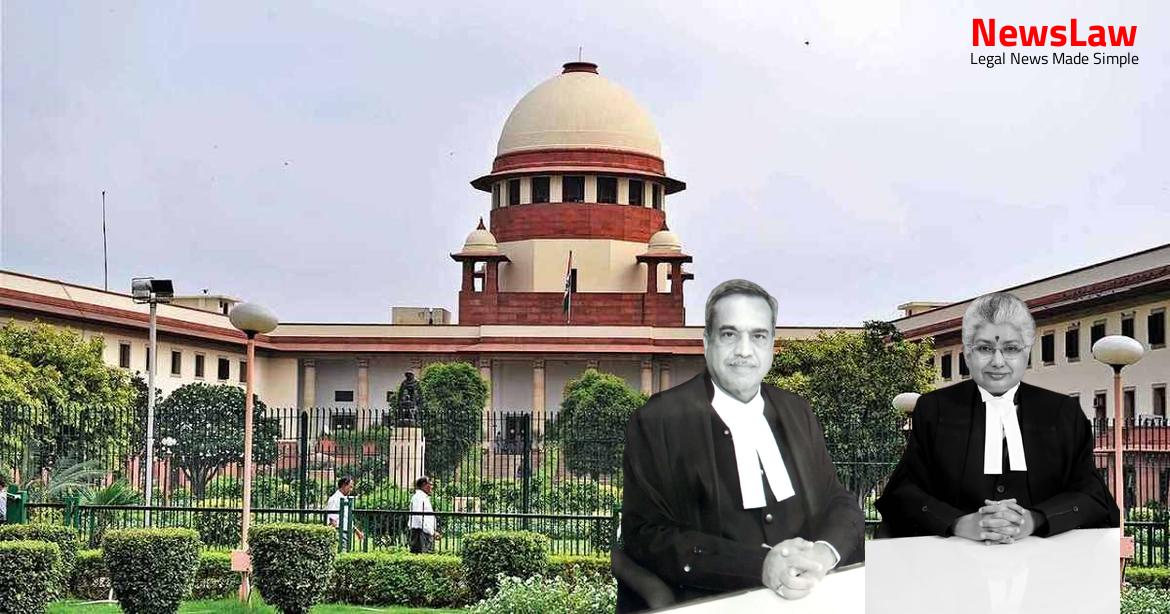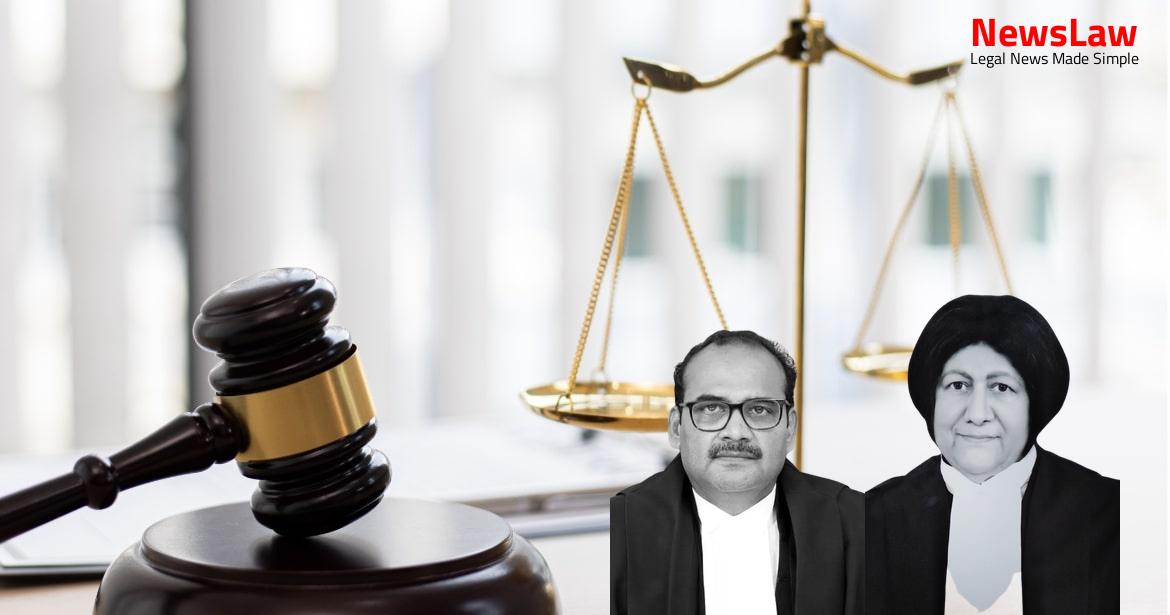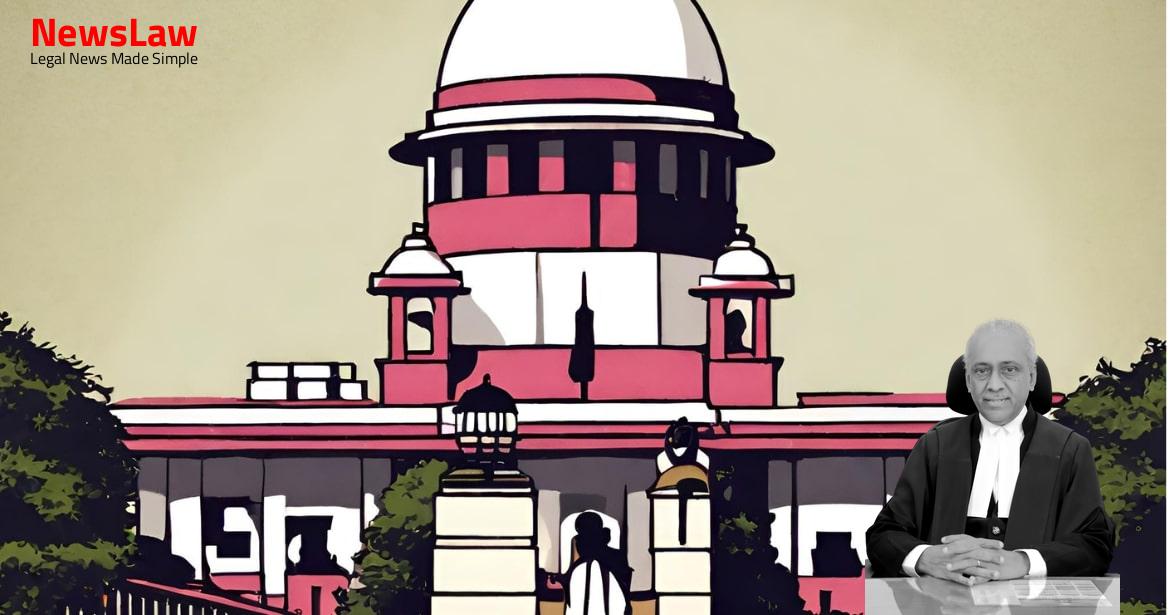Explore the intricate legal analysis conducted by the court regarding a land restoration order under West Bengal legislation. The court’s examination delves deep into the provisions of the law and its application to the specific case at hand, shedding light on the nuances of land alienation and restoration in the legal domain.
Facts
- The Special Officer sustained the application for restoration by an order passed on 14 March, 1995.
- Corollary directions were passed for refund of the consideration money and interest to the purchaser.
- The transferors applied for restoration of the subject property on 09 August 1974 before the Special Officer having jurisdiction over the subject land.
- The West Bengal Restoration of Alienated Land Act, 1973 contemplates return of land to a small land-holder in financially distressed conditions.
- The purchasers invoked writ jurisdiction of the High Court at Calcutta, and their petition was registered as W.P.L.R.T No 630 of 2003.
- The computation of the sum to be paid to the purchaser was specified in the order of the Special Officer.
- The appeal of the purchaser against the restoration order was dismissed by the Sub-Divisional Land and Land Reforms Officer.
- The applicant’s application for restoration was found to be in order on technical points by the later authority.
- For restoration of the conveyed land, the concerned landholder is required to make an application to the authority prescribed under the said statute.
- The High Court ruled against the applicants on the aspect of distress sale.
- The issue of whether the land in question fell under the purview of the 1973 Act was not addressed by the Tribunal or other statutory fora.
- The appellate authority upheld the decision of the Special Officer.
- The West Bengal Land Reforms and Tenancy Tribunal dismissed the purchaser’s application against the restoration Order citing lack of financial soundness of the transferors as a key factor.
- The High Court, through a judgment on 18 March 1993, set aside the orders of the statutory fora under the 1973 Act and remanded the matter to the Special Officer.
Also Read: Analysis of Curative Jurisdiction in Legal Dispute
Arguments
- Mr. Bhattacharya, learned advocate for the appellants, argues that the definition of land includes homestead, tank, well and water channel.
- The land in question in this appeal is identified in the schedule as a pond, which can be interpreted as a tank along with highland trees as part of a fishery.
- Mr. Bhattacharya justifies the restoration order on the grounds that the alienation was for the maintenance of the vendors and their family, coupled with an agreement for reconveyance, as proven before the fact-finding statutory bodies.
- Referring to a decision of the Calcutta High Court in Chitta Ranjan Ghosh v. State of West Bengal, (1976) 2 CLJ 180, he argues that the 1973 Act, whose constitutional validity was upheld by the High Court, does not apply to non-agricultural land.
- He stresses that the statute was intended to benefit only those engaged in agriculture who had to make distress sales, not every transfer of immovable property.
- Merely using part of the sale proceeds to purchase another agricultural land does not automatically disqualify a transferor from utilizing the restoration provision in the 1973 Act.
- The transferor can still invoke the restoration provision if the transaction being repudiated falls under the provisions of the 1973 Act.
Also Read: Contractual Interpretation in Real Estate Dispute
Analysis
- The judgement discusses the purchase of land by the vendors for the purpose of maintaining necessities, as reflected in submissions made in the first instance order.
- An agreement of reconveyance of the land was executed simultaneously with the deed of conveyance, with a time period of two years specified for execution.
- The nature of the transaction being a distress sale was contested before the High Court.
- The High Court held that the character of the land was never thoroughly examined in the case.
- The statutory definition of ‘land’ in the 1973 Act includes agricultural land, homestead, tank, well, and water channel.
- The Court considered the reasons for the sale mentioned by the vendors, which indicated a need for money for various purposes like education, loans, and marriage.
- The High Court’s judgment set aside certain findings of the Tribunal regarding the character of the land and distress sale criteria.
- The Act allows for restoration of land sold by individuals in need of money for maintenance, family, or cultivation costs.
- The High Court determined that in this case, the criteria for restoration under the Act were not met.
- The judgment also discusses the purchase of agricultural land by the vendors on the same day as the sale transaction.
- The amendments to the 1973 Act removed the requirement of being ‘in distress’ for a transfer to be considered for restoration.
- The available materials did not clearly establish that the land in question fell within the purview of the 1973 Act.
- The Special Officer shall make an order in writing restoring the land transferred to the transferor.
- The transferor is directed to pay the amount of consideration actually paid by the transferee, in equal instalments not exceeding ten, with interest at four per centum per annum.
- The first instalment is payable within three months of the order.
- Payment to be made to the transferee in case of alienation, bonafide lease, or usufructuary mortgage, as determined by the Special Officer.
- The definition of ‘transferor’, ‘transferee’, and ‘consideration’ is provided as per the Act.
- Any evidence submitted by the transferor regarding the terms of the sale deed shall be admitted.
- Procedure for restoration of lands alienated under specific circumstances is outlined in Section 4 of the Act.
- The amount ordered to be paid by instalments is made a charge on the land.
- Provisions for payment to mortgagees and consequences of sale or transfer of the land after the restoration order is made are specified.
- The nature of land to which the Act applies is defined in Section 2(2).
- The Act aims to provide relief to agriculturists in distress sales.
- The Act does not aim to reopen all property transfers but is focused on agricultural land.
- The word ‘distress’ in the Act is interpreted to mean ‘economic distress’.
- A Single Judge held that either of the conditions under Section 4(1)(a) and (b) can justify invoking restoration provisions of the Act.
- According to the Division Bench, ‘land’ includes homestead land of the agriculturist, not any non-agricultural structures.
- High Court’s opinion is correct
- Applicants should not have been non-suited from the restoration proceeding due to the lack of argument before statutory fora
- High Court’s judgement modified and matter remanded to Tribunal for determination of the nature of the land in question
- Tribunal directed to determine if the land falls under the 1973 Act
- Adjudication to be done after giving opportunity of hearing to opposing parties
Also Read: Non-compliance with requirements of Section 81(3) of the Representation of the People Act, 1951
Decision
- An agreement was entered into between the parties for repayment of Rs. 9500 within a specified period.
- If the repayment was not made within the agreed upon period, the agreement would be cancelled, and the buyer would not be entitled to claim the property.
- If the land in question falls under a specific statute, a previous order for refund of sale proceeds would be revived.
- If the land does not fall under the statute, the deed executed in 1968 remains effective without interference from authorities under a different act.
- The appeal was partly allowed based on the terms of the agreement.
- If the seller fails to sell the property after receiving payment, the buyer can execute and register the property through the court.
- Pending applications will be disposed of, and the earlier proceedings reached the High Court of Calcutta.
- The original transferors petitioned for restoration of land, which was rejected by the Special Officer and the appellate authority.
Case Title: RENUKA DEY . Vs. NARESH CHANDRA GOPE (D) THR.LRS. . (2020 INSC 623)
Case Number: C.A. No.-006264-006264 / 2013



